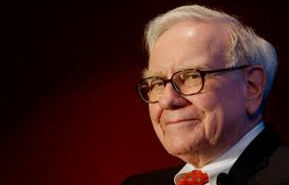
"Always do what you're afraid to do".
Ralph Waldo Emerson
Orange Capital Partners is a technology focused Hedge Fund trading in equities, currencies, and commodities. Since inception in March 2008 the fund has delivered a cumulative annual average return of 17% net of fees and commissions.
Our Mission:
Create wealth by investing in fundamentally new concepts and engineering practices with large impact
Instead of obsessing about uncertainty and daily volatility, we base our investment process on principles that don’t change over time.
Four books that inspired our principle stack:
1. Zero to One by Peter Thiel
2. The Innovation Stack by Jim McKelvey
3. The Innovator's Dilemma by Clayton Christensen
4. The Beginning of Infinity by David Deutsch
We want to invest in companies that hire PhDs who can win a bar fight.
Introduction to Orange Capital Partners presentation
Our focus is on autonomous robots. We see self driving cars and other forms of embodied intelligence as catalysts for rapid innovation.
See our presentation on AI and robots
As fund managers, we are in charge of deploying capital to projects with high expected returns. Our mission is to grow assets and increase wealth. What excites us is that we can make money and, by doing so, help improve things for everybody. We believe that successful businesses foster regenerative growth by developing products and services that add value and lower costs for customers simultaneously. We call this regenerative growth. Regenerative growth comes in many forms. Tesla intends to build cars that are fueled by sunlight and drive themselves. Biotech companies create novel tissues that help us build better materials or fight disease.
To illustrate our point, here is a little history of financial markets.
From Cavemen to Buffett and now Tesla
Investment management has been around ever since humans figured out how to safeguard resources for future use. For example, cavemen gathered protein rich food so they could build muscle and hunt down animals. The better they got at managing resources, the stronger they became. Investment management in those days was all about survival.
Over time, this changed. We became a bit more civilized when channeling funds to future projects. People like Warren Buffett made a fortune investing in profitable businesses that managed to carve out a powerful position. They seek dominance and expend significant resources to exclude competition in order to maintain pricing power. Values, purpose, and ethics are secondary.
Selling sugar water to obese kids or raising prices for railway services is considered good business practice. Insurance companies are very good at sucking premiums out of customers and then avoiding payouts. Another characteristic of such businesses is that they are incentivized to minimize equity, which reduces them to incrementalism.
To make amends and look good at the Thanksgiving dinner table, those investors donate money to charitable organizations. So, the mantra is: "Make it dirty and then do good things with it."
It doesn't have to be that way
We reached a point in the development of capitalism where this separation went away. Future businesses will only succeed if they are regenerative by adding resources through consumption. For example, Teslas get better at driving themselves through artificial intelligence. Our thesis is that regenerative growth is not only better for everybody but also the only way to successfully compete in the future. Regenerative growth literally means to add resources while consuming products and services. Tesla is developing solar-powered vehicles and adaptive robots that learn during operation, with both innovations inherently regenerative in design..
Regenerative growth has huge implications for expected returns. First, these companies end up creating more resources than they use. Second, their rate of innovation is directly related to their regenerative function. The better they are at building regenerative products and services, the faster they grow. This is precisely why they become more competitive and valuable.
Regenerative growth delivers higher returns.
View our current portfolio




